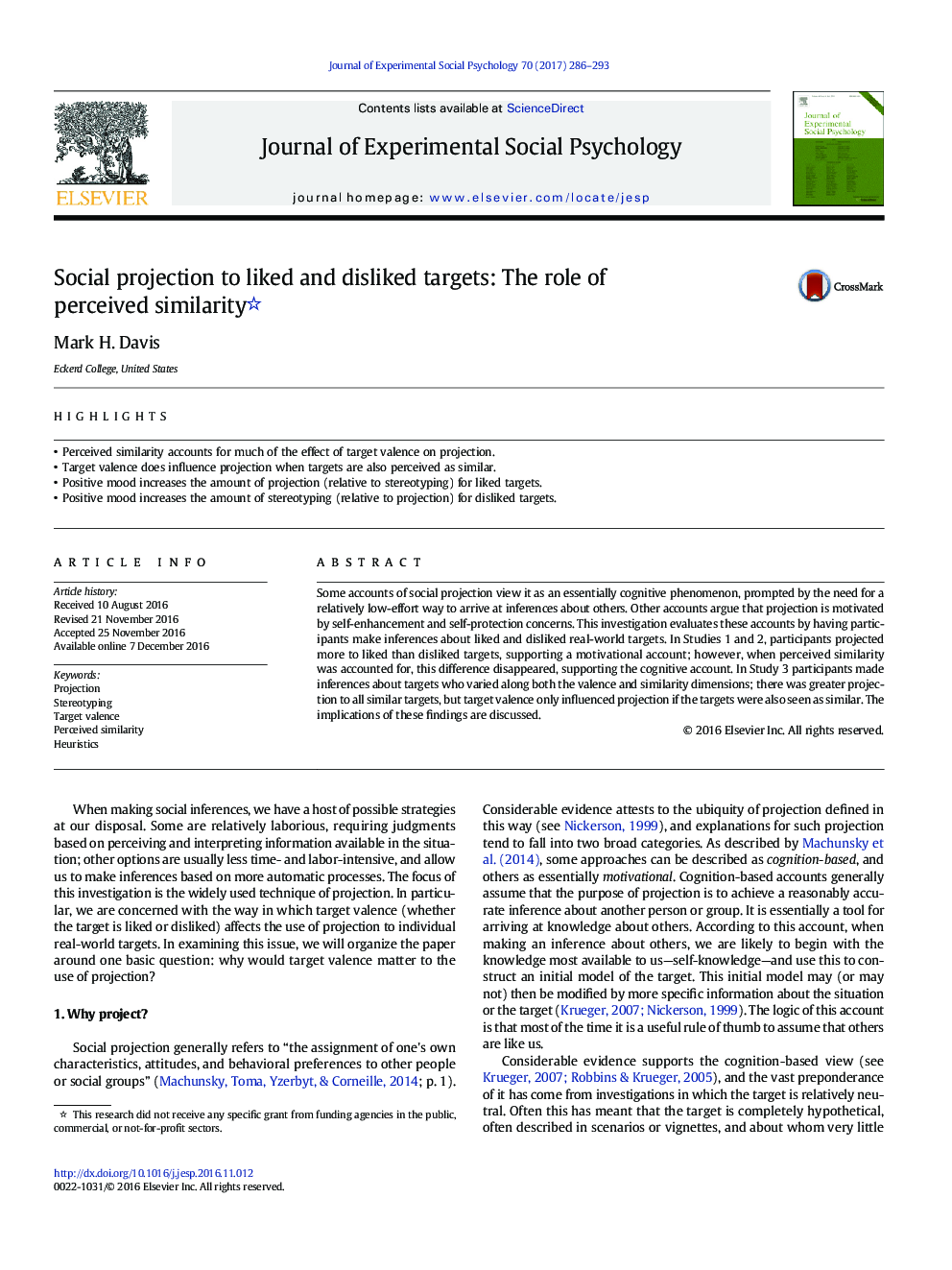| Article ID | Journal | Published Year | Pages | File Type |
|---|---|---|---|---|
| 5045649 | Journal of Experimental Social Psychology | 2017 | 8 Pages |
â¢Perceived similarity accounts for much of the effect of target valence on projection.â¢Target valence does influence projection when targets are also perceived as similar.â¢Positive mood increases the amount of projection (relative to stereotyping) for liked targets.â¢Positive mood increases the amount of stereotyping (relative to projection) for disliked targets.
Some accounts of social projection view it as an essentially cognitive phenomenon, prompted by the need for a relatively low-effort way to arrive at inferences about others. Other accounts argue that projection is motivated by self-enhancement and self-protection concerns. This investigation evaluates these accounts by having participants make inferences about liked and disliked real-world targets. In Studies 1 and 2, participants projected more to liked than disliked targets, supporting a motivational account; however, when perceived similarity was accounted for, this difference disappeared, supporting the cognitive account. In Study 3 participants made inferences about targets who varied along both the valence and similarity dimensions; there was greater projection to all similar targets, but target valence only influenced projection if the targets were also seen as similar. The implications of these findings are discussed.
